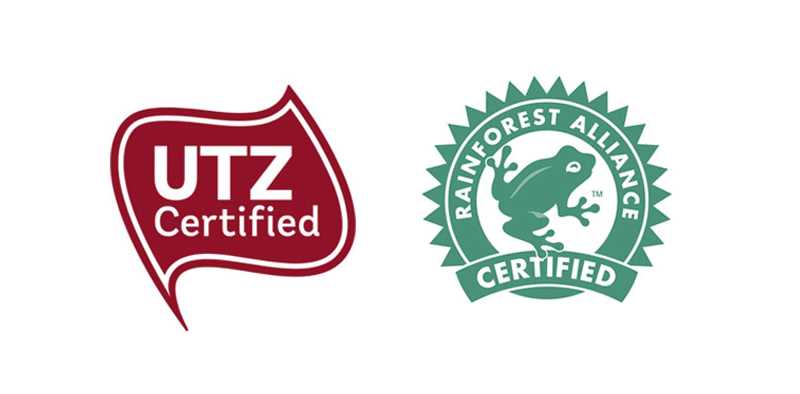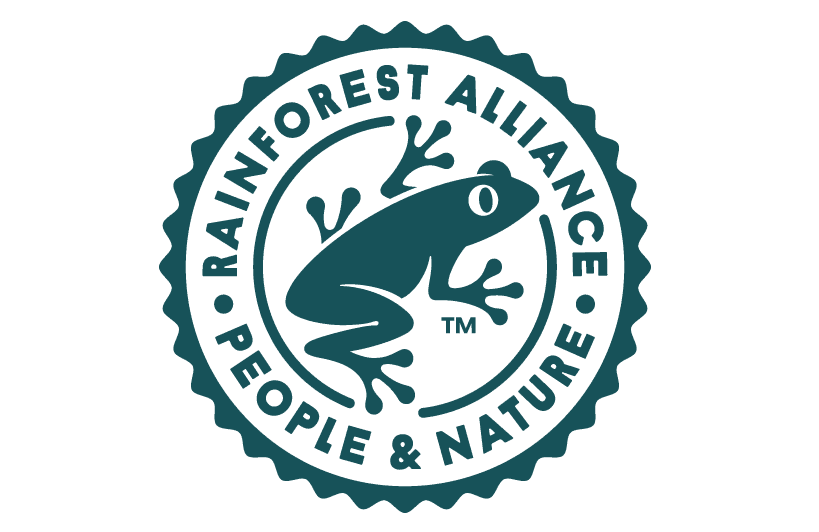Back in 2017, two of the world’s largest certifiers of ethical cocoa, UTZ and Rainforest Alliance, announced they were merging. From September this year we’ll start to see the new logo on product packaging and a new, merged, production standard will come into effect from July next year.

Here at Just Kai, we’ve been on tenterhooks waiting for the announcement of the new standard. As discussed earlier, we feel that UTZ meets our minimum requirements for slave- and child-labour free cocoa but that the old Rainforest Alliance doesn’t. Which way will the new standard go? Will we suddenly find we have a host of new products to recommend (Whittakers peanut slabs and Magnum ice creams!) or will we need to remove all the currently-UTZ-certified items off our list?

The new standard has now been published and we are, on the whole, pleased. Compared to UTZ, it seems most producers will be the same or better off under the new standard:
- we feel that Rainforest Alliance has good processes in place to check for both child and forced labour: the things that concern us most here at Just Kai;
- we expect that smallholder farmers (who make up 80-90% of cocoa producers worldwide) will, on average, be financially slightly better off than they were under UTZ. This will further reduce the risk of child labour on these farms, as poverty often drives parents to set their own kids to work on the family farm;
- unfortunately, we expect the 10-20% of cocoa producers who are employees working for wages will be worse off, both financially and in terms of health and safety.
However, comparing the two standards caused us to realise something important. We’ve long been saying that UTZ guarantees farmers a living wage. It turns out we got that wrong. Instead, UTZ certifies that hired workers have received a living wage, but says nothing about the wages/incomes of people working their own farms. As only a very small portion of the cocoa workforce are employees working for wages, UTZ-certification doesn’t guarantee a living wage for the majority of growers.
So, whilst both UTZ and the new Rainforest Alliance work really hard to check for child labour, it turns out neither makes sure families earn enough to get by without setting their kids to work. This leaves kids on these farms vulnerable to being sent to work elsewhere and even to trafficking. Whilst it’s very unlikely child labour will have been used directly in cocoa grown under this new certification, we are uncertain whether we can consider it truly child labour free. That said, it’s no worse than UTZ in this regard and is still a lot better than uncertified brands.
The new Rainforest Alliance standards
Firstly, it’s worth noting that Rainforest Alliance is trying to take a new approach to certification. They have goals they want to reach (no child labour, a living income for all, no deforestation etc.), but feel that the world is too complex for a simple list of pass/fail check boxes to be effective. Instead, they have made certain aspects of their standard pass/fail, for others farmer groups are encouraged to come up with their own plans to move towards the goal and a few are opt-in.
We have sympathy for the goals of this approach, but it doesn’t make it easy for the end consumer to know what they’re buying. We have decided to ignore the more flexible sections of the standard and only consider the sections growers are required to adhere to, as those are the only conditions we can be confident have been met.
Here is what we can be confident of in terms of Just Kai’s key concerns:
both forced and child labour are actively checked for and remediation measures are in place. Every farmer group has to assess the risk of these practises on their farms every three years and come up with a monitoring plan based on the risks identified. All cases of forced or child labour identified have to be reported to Rainforest Alliance and remediation measures need to be taken. Rainforest Alliance is also researching how to better identify and prevent child labour in regions of West Africa where it is particularly rife.
the average financial rewards for growers who own their own farms (which covers the majority of producers) will likely be greater than they were under UTZ, at least from July 2022. Under UTZ, farmer groups negotiated various premiums with first buyers and received, as of 2018, an average of €83/tonne. At least 50% of this was required to be distributed to individual farmers as a no-strings-attached cash payment (and, on average 55% was paid out this way); the remainder could be invested by the group in farming improvements. In the new Rainforest Alliance system, cash payments to farmers and payments for the group to invest in farming improvements are negotiated separately. Initially there are no minimum payments set for either but, from July 2022, the payment to farmers must be at least US$70/tonne. This is well above the US$52 (55% of €83) they averaged previously. Moreover, Rainforest Alliance intends $70 to be a minimum, rather than standard, payment. If they find most first buyers are only paying the $70 they have committed to increasing the minimum.
the standard is weaker than the old UTZ standard when it comes to conditions for hired workers:
- in terms of wages, employers are required to check (and report) whether they are paying at least a living wage. However, if they are not, they simply have to make a plan to get there eventually (and make sure they at least keep up with local inflation in the mean time). This is much weaker than the former UTZ requirement to be paying a living wage by year 4 of certification. In addition, the old UTZ standard limited the proportion of your wages that could be paid in ‘goods in kind’ (housing, food from a company canteen etc.) but the new Rainforest Alliance makes no such restriction, leaving workers open to unrealistic deductions for these things.
- in terms of health and safety, workers need to have information about hazards and how to protect themselves from them (including access to suitable PPE). However, the old UTZ standard explicitly stated that this information had to be provided in the worker’s own language; the new Rainforest Alliance standard does not.
It is disappointing that the new standard doesn’t protect hired workers to the same standard as the old UTZ certification. However, only a very small proportion of cocoa producers are hired workers: as of 2014, 80-90% of all cocoa was grown on small family farms where people were working for themselves. This makes us expect that, on balance, most cocoa growers will be slightly better off under the new Rainforest Alliance system even though the small proportion that receive wages will be less protected.